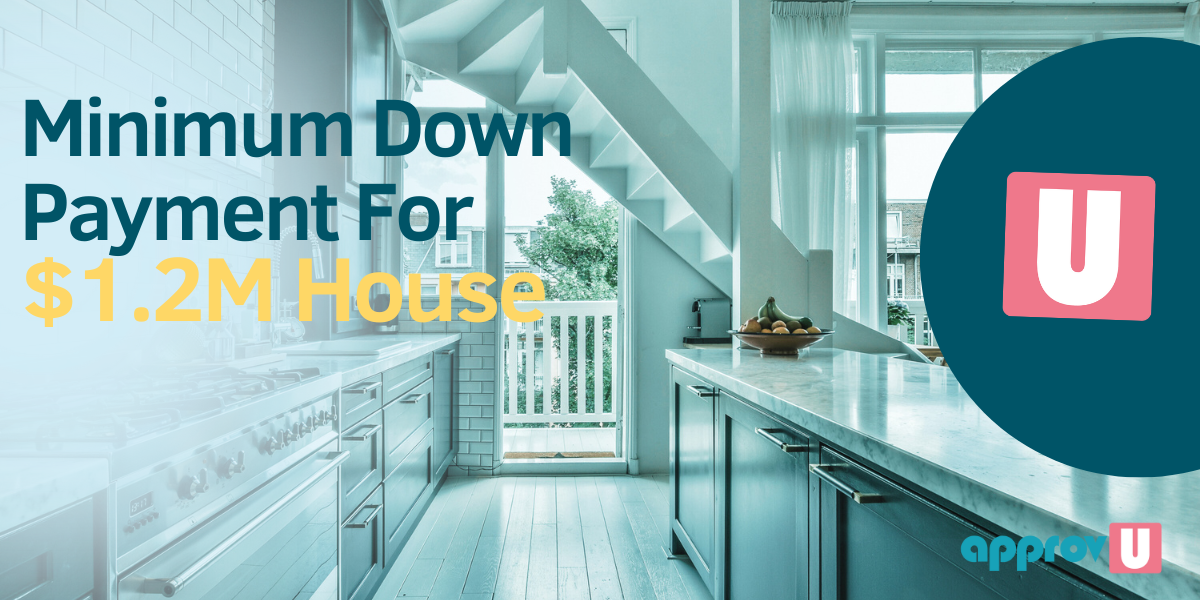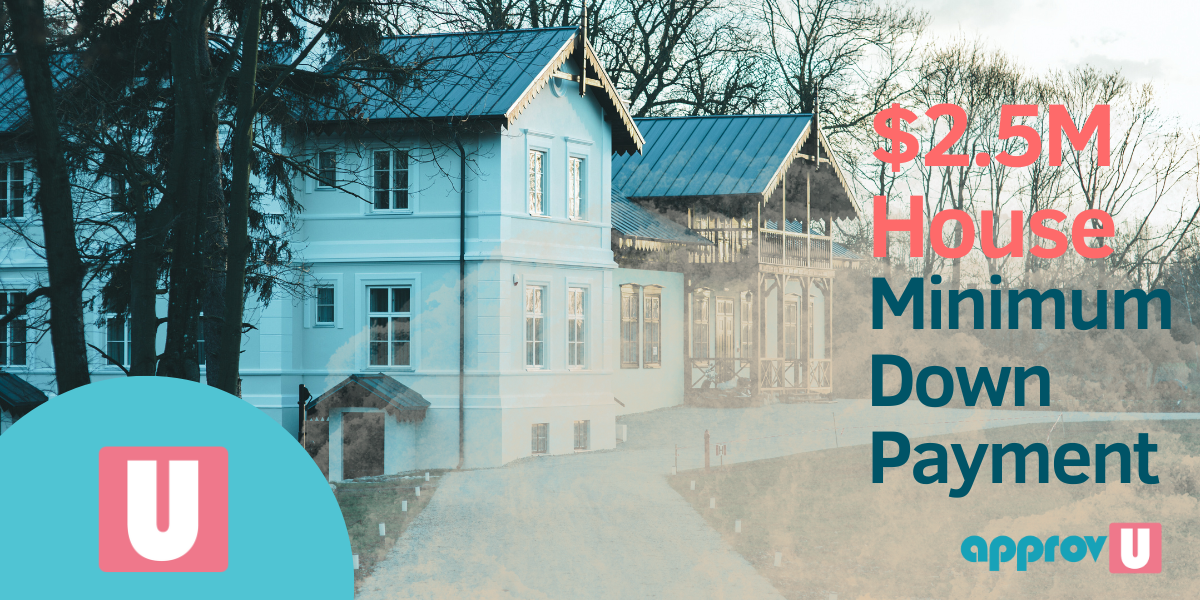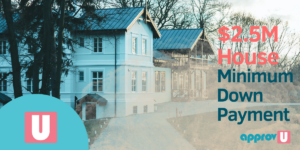Thinking of homeownership?
Now, you might feel a cocktail of emotions – a dash of excitement, a spoonful of anticipation, and maybe a little sprinkle of apprehension.
And why wouldn’t you? Buying your very first home is a big deal.
That’s why you must understand all the nitty-gritty details involved in this process, including the Land Transfer Tax (LTT).
In Canada, you must pay this tax when you buy a property.
It’s one of those additional costs with home ownership that can catch first-time buyers off guard if they’re unprepared.
But here’s the good news: As a first-time home buyer, you might be eligible for a land transfer tax rebate.
That’s right! The government has your back on this one, and you could save thousands of dollars.
This is where our comprehensive guide comes into play.
Stick with us, and we’ll break down what this tax is all about, how you can apply for the rebate, and what impact it could have on your home purchase decision.
So, grab your favourite cup of coffee, find a comfy chair, and dive into the world of the First-Time Home Buyer Land Transfer Tax.
Trust us. By the end of this guide, you’ll feel more confident and prepared for your exciting home-buying journey!
Understanding Land Transfer Tax in General
Definition and Purpose of the Land Transfer Tax
Imagine you’re buying a car. Along with the price of the car, you have to pay a little extra to get it registered in your name.
Similarly, you pay a Land Transfer Tax (LTT) when you buy a house. This is a one-time tax paid when the property changes hands from the seller to you, the buyer.
The government uses this tax to cover the costs of services like public transportation, road maintenance, and other community services.
Think of it as contributing to keeping the community you’re moving into well-maintained and thriving.
How It Impacts the Overall Cost of Buying a Home
You might be thinking, How much will this set me back?
Well, it’s important to consider this tax in your budget because it can be a significant amount.
The LTT is calculated based on the purchase price of your home. It’s usually a percentage that increases with the value of the property.
So, the more expensive your new home, the higher the tax.
This means the LTT adds to the upfront cost of buying a home along with your down payment and mortgage.
It’s like when you save up for a big holiday – you need to budget not just for the hotel and flights but also for the extra expenses like food and activities.
Brief Look at How It Varies Across Different Provinces in Canada
Now, here’s where it gets interesting.
Like each city has its own vibe, each province has its own way of calculating the LTT.
The tax is pretty low in some provinces, like Alberta and Saskatchewan, while it can be higher in others, like British Columbia and Ontario.
In Toronto, there’s even an additional municipal land transfer tax.
Think of it like going to different amusement parks – each one has its own ticket price and special attractions.
It’s important to research the LTT rate in the province where you plan to buy your house so you know what to expect and can budget accordingly.
A Deep Dive into First-Time Home Buyer Land Transfer Tax
Understanding the First-Time Home Buyer Land Transfer Tax Rebate
Think of it as a welcoming gift for stepping into the world of homeownership.
This rebate is specifically designed for first-time home buyers to ease their transition into owning their first property.
Normally, when purchasing a home, you’re required to pay a Land Transfer Tax (LTT).
However, as a first-time buyer, you’re eligible for a rebate on this tax.
It’s like receiving a discount on an important purchase, reducing the overall financial burden.
This rebate effectively puts some of that money back into your pocket, making the dream of owning a home more financially accessible.
Eligibility Criteria for First-Time Home Buyer’s Land Transfer Tax Rebtate in Canada
Not everyone gets a welcome bonus. You must meet specific criteria to qualify for the first-time home buyer’s land transfer tax rebate.
Firstly, you must be purchasing your first home, which means you’ve never owned a home before, not just in Canada but globally.
Additionally, there’s an expectation that you will occupy this new home as your primary residence within a set timeframe.
Essentially, this rebate is a valuable opportunity for genuine first-time homeowners who are committed to making their new purchase their living space.
Breakdown of the Amount of Tax Rebates Available
So, how much can you actually save with this credit?
The exact amount of the first-time buyer’s land transfer tax rebate varies depending on the purchase price and location of the house.
Each province has its own rules and limits. For example, in Ontario, you can get a rebate of up to $4,000; in British Columbia, it could be even more.
It’s like different stores offering different discounts – you need to check out the specifics in your province to know exactly how much you can save.
Provincial Variations of the First-Time Home Buyer Land Transfer Tax
Let’s explore how the First-Time Home Buyer Land Transfer Tax varies across provinces.
Think of it as if you’re going on a cross-country road trip, and each province has its own unique rules of the road.
Differences in Regulations and Rates Across Provinces
Ontario
In Ontario, think of it as getting a nice discount coupon as a first-time home buyer.
The province offers a rebate of up to $4,000 on the land transfer tax.
So, if you’re buying your first home here, you could pay no land transfer tax on homes priced at $368,000 or less. It’s a great way to save some money right off the bat.
Besides the Ontario rebate, Toronto offers a municipal land transfer tax rebate of up to $4,475 for first-time home buyers.
British Columbia
Moving over to British Columbia, the scenario gets even better.
If your first home costs $500,000 or less, you can skip the land transfer tax completely.
There’s still a partial rebate if the home is priced between $500,000 and $525,000. It’s like having a sliding scale of discounts based on the price of your home.
Alberta
Alberta does things a bit differently.
There’s no specific land transfer tax here, but rather a title transfer fee.
This fee is generally much lower than the land transfer taxes in other provinces. Imagine shopping in a store where the prices are just naturally lower, without a special discount.
Quebec
Quebec offers a ‘welcome tax,‘ which is a bit of a misnomer because it’s actually a property transfer duty.
However, there are some rebates available for first-time home buyers.
The rebate amount and eligibility criteria can vary, so it’s like having a rebate that adjusts to different situations.
Other Provinces
Each other province has its own set of rules and potential rebates for first-time home buyers.
From Manitoba’s land transfer tax with a small discount for first-timers to Nova Scotia’s deed transfer tax, each province has its own unique take on this tax.
Prince Edward Island (PEI) waives the property transfer tax for first-time home buyers without a limit on the purchase price.
It’s important to research the specific province you’re interested in, just like looking up local laws and customs when travelling to a new place.
How to Apply for the First-Time Home Buyer Land Transfer Tax Rebate
Navigating applying for the First-Time Home Buyer Land Transfer Tax Rebate can be compared to preparing for a big adventure.
Let’s break it down into manageable steps:
Necessary Documents and Forms
Think of this step as packing your suitcase with everything you need.
To apply for the rebate, you’ll need certain key documents:
- Proof of Identity: This could be your driver’s license or passport. It’s essential to prove that you are who you say you are.
- Proof of Purchase: This includes a copy of the final signed agreement of purchase and sale of the home. It’s like your ticket to the journey.
- Land Transfer Tax Statement: This document shows the amount of tax due and is often prepared by your lawyer.
- First-Time Home Buyer Eligibility Affidavit: Some provinces may require this form to confirm that you’ve never owned a home.
Process of Application and Typical Time Frames
Now, let’s map out the journey:
- Complete the Paperwork: Fill out all the necessary forms. Make sure everything is filled out correctly and completely.
- Submit Your Application: Generally, this is done through your lawyer or notary when closing the deal on your new home. During the land transfer process, they will usually apply for the rebate on your behalf.
- Wait for Processing: The time frame for processing can vary. Sometimes, the rebate is applied instantly at closing, reducing the tax you pay upfront. In other cases, receiving the rebate after closing may take a few weeks.
Potential Pitfalls to Avoid During the Application Process
Imagine this part as being aware of potential roadblocks on your journey:
- Inaccurate Information: Ensure all the details on your forms are accurate. Mistakes can cause delays or even denials.
- Missing Deadlines: Be aware of any deadlines for submitting your rebate application. Missing these can be like missing your flight – it can cause a significant setback.
- Eligibility Misunderstanding: Make sure you fully understand the eligibility criteria. Applying for a rebate you’re not eligible for is like trying to use an expired passport.
Impact of the First-Time Home Buyer Land Transfer Tax on the Housing Market
Understanding the impact of the First-Time Home Buyer Land Transfer Tax on the housing market is like analyzing how a key ingredient changes the flavour of a recipe. Let’s break it down:
Analysis of How the Tax Influences Home Purchase Decisions
Imagine you’re shopping for a new car and find out there’s an extra fee you didn’t account for.
This might make you reconsider your budget or the type of car you buy. Similarly, the Land Transfer Tax (LTT) is an additional cost in the home-buying process.
For first-time buyers, this tax can be a significant amount, depending on the price of the home and the province in which you’re buying.
Now, enter the First-Time Home Buyer’s Tax Credit. This is like a discount offered to ease the financial burden.
It can make a big difference in your decision-making process.
Knowing that you can get a rebate on the LTT might encourage you to go ahead with buying a home, or it might allow you to consider homes just outside your budget.
This rebate can be the push that turns your dream of homeownership into a reality.
Impact on the Overall Housing Market in Canada
The First-Time Home Buyer Land Transfer Tax Rebate is a stimulant for the housing market.
By offering this financial incentive, the government makes homeownership more attainable for first-time buyers.
This can lead to an increase in the number of people entering the housing market, which can, in turn, stimulate growth in the sector.
Moreover, when first-time home buyers enter the market, they often free up rental properties or purchase entry-level homes.
This movement can have a ripple effect, enabling the previous owners of these entry-level homes to upgrade to larger homes stimulating activity in different housing market segments.
In a broader sense, this tax credit helps individuals achieve their dream of owning a home and also plays a part in maintaining a dynamic and healthy housing market in Canada.
Like adding fertilizer to a garden, it encourages growth and vitality in the housing sector.
So, in essence, the First-Time Home Buyer Land Transfer Tax and its rebate are significant factors in your home-buying journey and the larger housing market.
They can influence your personal decisions and contribute to the overall health and dynamism of the housing market in Canada.
Frequently Asked Questions about the First-Time Home Buyer Land Transfer Tax
Let’s tackle some frequently asked questions about the First-Time Home Buyer Land Transfer Tax. Think of this as your personal FAQ guide, helping you clear up any confusion.
Common Misconceptions and Queries Related to the Tax
1. I’m buying a home for the first time, so I automatically don’t have to pay any land transfer tax, right?
It’s a common belief but not entirely accurate. As a first-time home buyer, you may be eligible for a rebate on the land transfer tax, but this doesn’t always mean you won’t pay anything at all. The amount you pay or save depends on the purchase price of your home and the specific rules in your province.
2. The rebate applies to any home I purchase, regardless of price.
This is another misconception. The rebate has limits, and these limits vary by province. In some places, if your home’s purchase price is above a certain threshold, you might not qualify for the full rebate.
3. I can apply for this rebate even if I’ve owned a home before.
Actually, the rebate is specifically for first-time home buyers. If you’ve owned a home in Canada or elsewhere, you generally won’t qualify.
Detailed Responses and Clarifications
1. Eligibility for the Rebate
To be eligible for the rebate, you must buy a home for the first time. This means you haven’t owned a home before, anywhere in the world. Also, you usually need to use the home as your primary residence within a set period after the purchase – you can’t buy it as an investment property.
2. Amount of the Rebate
The amount of the rebate you can receive depends on the province you’re buying in and the home’s purchase price. For instance, you can get up to $4,000 in Ontario, effectively covering the land transfer tax on homes up to $368,000. In other provinces, the details can vary, so it’s important to check the specifics for your location.
3. Applying for the Rebate
Generally, your lawyer or notary will handle the application for the rebate as part of the closing process of your home purchase. You must provide them with all the necessary documentation to prove your eligibility. Getting this right is crucial to avoid delays or issues with your rebate.
Conclusion on First-Time Buyer Land Transfer Tax
Leveraging the First-Time Home Buyer Land Transfer Tax rebate is immensely beneficial.
It can transform a nearly unaffordable house into one that fits your budget, facilitating an earlier transition into homeownership and fostering long-term financial stability.
It’s not just about immediate savings; it’s a strategic step towards building equity and securing your financial future.
As you step into the world of homeownership, keep these insights in mind – your dream home is more attainable than you might think with the right knowledge and tools.
But remember that each province has rules and rebate amounts; your lawyer or notary usually manages the application process.
This rebate not only eases your financial burden as a first-time buyer but also positively impacts the broader housing market by encouraging homeownership.
















